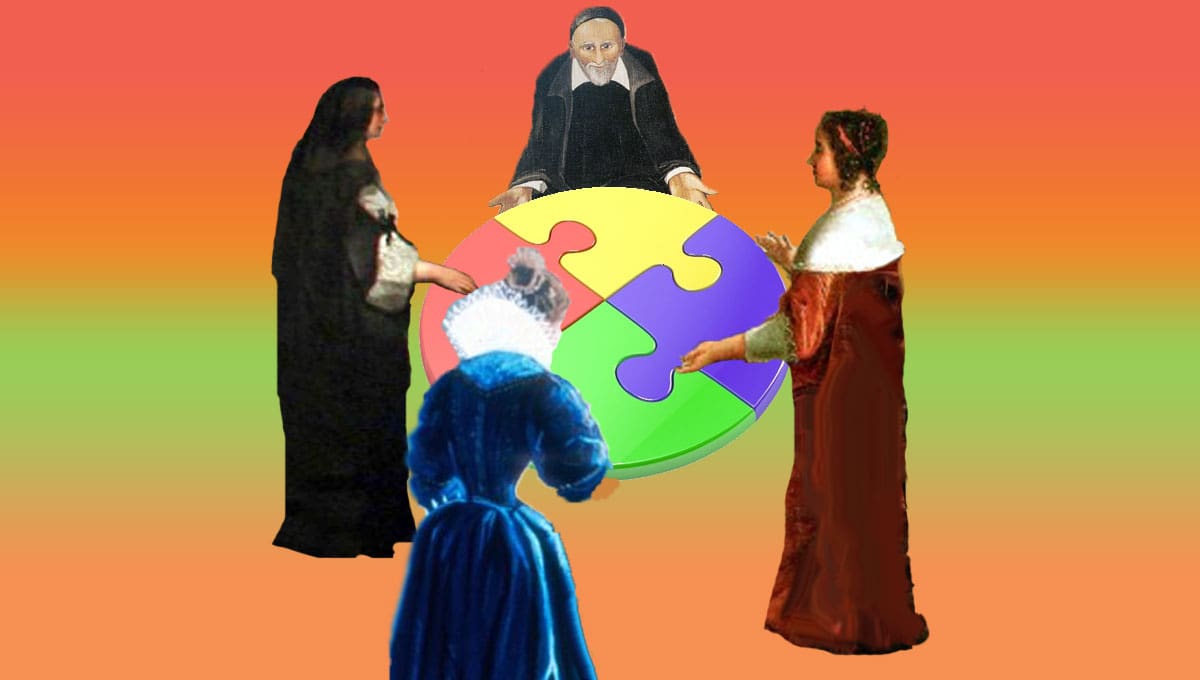Woman Appointed Parish Pastoral Care Coordinator
Bishop Frank Caggiano has inaugurated a new leadership model in a Connecticut parish. He appointed a woman to serve as parish life coordinator. In a letter to parishioners of St. Anthony of Padua in Fairfield, Connecticut, He said Eleanor Sauers would have decision-making authority over a team of priests who will be responsible for sacramental ministry. He sees the action as part of his response to the recent Synod’s call for concrete inclusion of women in Church leadership. His action drew predictably mixed results from pews on the right and the left in the church.
This raises two questions. Did this come out of the blue? What might be St. Vincent’s reaction?
Is this something new?
For some parishioners, it may seem to have come out of the blue. In fact, she is by no means the first. The possibility of lay “parish-life coordinators” has existed in the Code of Canon Law and has been an option available to bishops since in 1983. Canon 517 of the Code of Canon Law gives the diocesan bishop options for dealing with circumstances in which it is not possible to assign to a parish a priest who is able to serve as its resident and full-time pastor. Many dioceses have implemented this option, not only in the US but around the world.
Thirty-five years later a Synod of Bishops of the Catholic Church has stated…
“The absence of women’s voices and points of view impoverishes discussion and the path of the church, subtracting a precious contribution from discernment”… The synod recommends making everyone more aware of the urgency of an inescapable change”
For any who wonder what the qualifications are I invite you to visit the USCCB approved National Certification Standards for Lay Ecclesial Minister (2011)
What would Vincent think? “WWVT”
Honestly, no one can be certain how St. Vincent would have reacted to this. But we very definitely know what St. Vincent did in his lifetime.
Let’s remember that in his day the only role for women was a life of prayer behind the walls of a convent. There was no such thing as women serving the needs of the Christian community outside convent gates.
Father John Prager of the Eastern Province of the Congregation of the Mission reminds us what Vincent said and did. He lets Vincent speak for himself…
Vincent invited men to participate in these confraternities but the needs of the poor, especially the sick poor, demanded the attention of a woman (also, as in Châtillon, the women expressed a greater degree of availability). In doing this Vincent was aware of the fact that he was extending to women a role and a responsibility that had been taken away from them.
…Our Lord receives as much glory from the women’s ministry as from that of the men…”
Because both the men’s and the women’s associations are only one and the same association… and since only the ministry is divided… and because Our Lord receives as much glory from the women’s ministry as from that of the men… for these reasons the Servants of the Poor will show as much concern for the preservation and growth of the women’s association as for their own (CCD:XIIIb:62).
…For eight hundred years…”
The second motive is the fear you should have that those works may fail and die in your hands. That would doubtless be a great misfortune, Ladies, and even greater, since the grace God has given you of engaging you in them is so rare and extraordinary. For eight hundred years or so, women have had no public role in the Church; in the past there were some called Deaconesses… About the time of Charlemagne, however, by a discreet working of Divine Providence, this practice came to an end; persons of your sex were deprived of any role and haven’t had any since then. And now that same Providence is turning today to some of you to supply what was lacking to the sick poor of the Hôltel-Dieu (CCD:XIIIb:432).
…you are released from the prohibition placed upon you…”
Vincent spoke about the excellence of the ministry of these women:
You practice what widows of the primitive Church did, namely, to meet the material needs of the poor as they did, and even the spiritual needs of persons of their own sex, as they did. In this you will be released, as it were, from the prohibition placed upon you by Saint Paul in 1 Cor 14, “Women should keep silent in the churches; nor are they permitted to speak.” Then he adds, “For it is a disgrace for women to speak in church.” And in 1 Tm 2, “I do not permit a woman to act as a teacher,” adding as the reason that, “Adam was created first; Eve afterward,” and “It was not Adam who was deceived but the woman. It was she who was led astray” (CCD:XIIIb:381).
Extraordinary words and actions for his day! He saw a need, recognized an untapped source, and figured out many ways to put it into practice – The Confraternities of Charity and later the Daughters of Charity.
Walking in Vincent’s footsteps…
- What needs do you see in the church today that are not being met?
- What resources are not being utilized?
- How can you contribute to connecting these two dots?








0 Comments